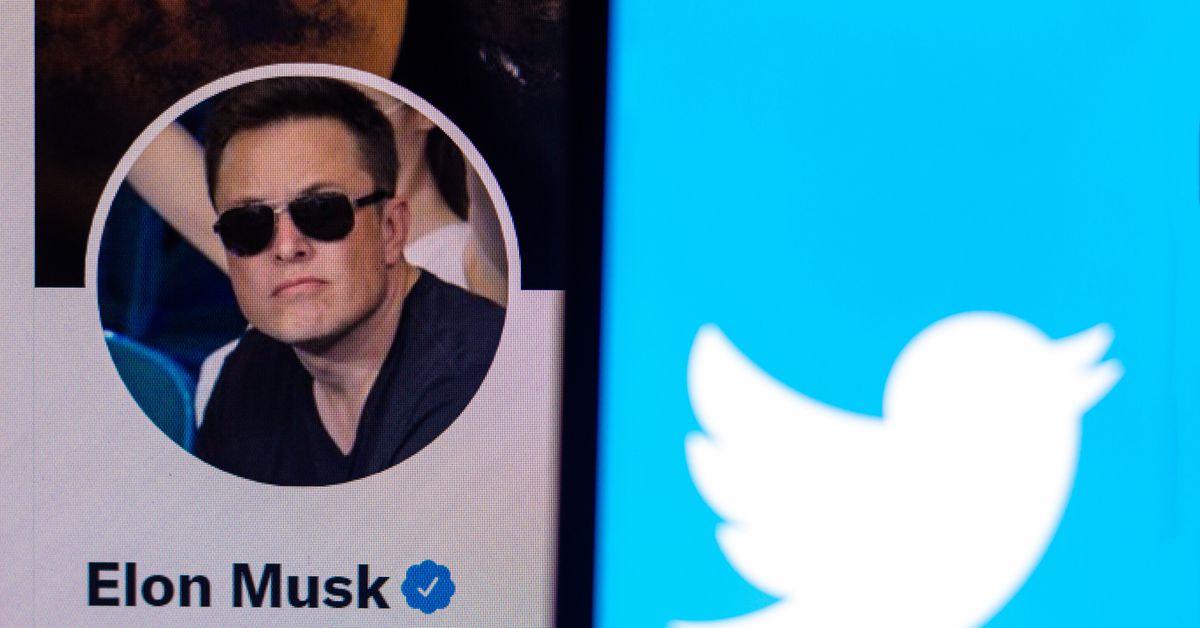
Compared to other social media companies, Twitter is tiny.
For years, investors have criticized it for failing to achieve its full potential. Twitter hasn’t been able to acquire billions of users like Facebook (which has over 11 times more daily active users) or to grow a mega advertising business like Google-owned YouTube (which had over five times more revenue than Twitter last quarter).
But Elon Musk’s $43 billion offer to buy Twitter on Thursday — whether it’s viable or not — shows how important and influential the company is, even when compared to its much larger rivals. There’s a good reason why Musk, the wealthiest person in the world, has already spent about $3 billion to buy the top stake in Twitter and is now spending his time and effort loudly proclaiming that he wants to entirely take over the company. Again, even if Musk is not planning to follow through with the deal, he’s still flexing his power and influence to pressure Twitter to run its business as he desires. The reason Twitter is valuable to Musk is, in essence, the same reason it’s valuable to politicians like former President Donald Trump, who for years pushed to say whatever he wanted on the platform without consequence, until he crossed the line so far that Twitter (and most other social platforms) permanently suspended him.
For politicians, business leaders, celebrities, and journalists, Twitter is a key platform for amplifying their messages and controlling their own narratives. Musk’s focus on Twitter, and his efforts to influence how it functions and moderates its users, underscore just how important the company is to public discourse — irrespective of how much profit it makes — and raises questions about who should be able to control a company that holds so much power.
Speaking at the 2022 TED conference in Vancouver on Thursday, Musk was asked why he wants to buy Twitter: “My strong, intuitive sense is that having a public platform that is maximally trusted and broadly inclusive is extremely important to the future of civilization,” Musk said. “But I don’t care about the economics at all.”
There’s good reason to question Musk’s claims that he wants to take over Twitter in the name of defending free speech and civilization, as my colleague Whizy Kim has written. But it also makes sense that for Musk, it’s not really about the money he would make or lose off Twitter’s bottom line. Musk’s interest in owning or reshaping the company shows just how valuable the platform is, even if that value comes in the form of soft power.
Twitter’s social and political worth is more than its stock price
Twitter is, in many ways, a platform of the elite. While it can sometimes elevate the voices of ordinary people who don’t command massive followings on the platform, it’s most powerful as a communication tool for already prominent and influential people.
Though it has about 200 million daily users, Twitter has had an outsized role in shaping politics, particularly in the US as the former platform of choice for Trump until the end of his presidency, when he was permanently suspended for tweeting in support of the January 6 Capitol riot.
In the past, when once-prominent users like Trump, Alex Jones, and Milo Yiannopoulos have been banned from Twitter, they’ve turned to alternative platforms for attention but failed to attract the same social media attention they had at their Twitter peak. Twitter is distinct from Facebook and Google in that the financial markets don’t truly reflect its full power, which is why Musk can entertain the idea of buying the entire company with a fraction of his total estimated net worth of over $220 billion.
Twitter’s importance also makes it vulnerable to exploitation.
The same VIPs who boost Twitter’s value by tweeting all the time can use it to wreak havoc. Influencers have used Twitter to push conspiracy theories like QAnon into the mainstream, politicians have used it to threaten violence, and celebrities have used it to promote harmful health misinformation.
As a result of all these issues, Twitter has in recent years expanded its rules around thorny speech issues, like labeling false election claims or misinformation about Covid-19 vaccines. In its new era, Twitter has begun balancing its commitment to letting people say what they want and minimizing the harms that people can do using its platform. For Musk, there’s value in being the person who sets those terms, and he has made it clear that he will err on the side of allowing as much controversial speech as possible.
“Twitter should match the laws of the country,” said Musk at the TED conference on Thursday, then later said, “If it’s a gray area, I would say let the tweet exist.”
But allowing absolutely free speech is easier in concept than in practice. If Musk were to buy Twitter, its moderation rules around topics from hate speech to threats of nuclear violence would ultimately be at his discretion or at the discretion of the leaders he puts in charge.
If another major tech company like Facebook or Apple tried to buy Twitter, that would likely set off antitrust concerns. But there’s nothing under US law stopping an incredibly wealthy individual like Musk from buying a company with so much power, even though there’s an obvious possibility that Musk could use the platform to shape his own business or political interests.
We don’t know yet what will come of Musk’s expressed interest in buying Twitter. It’s worth noting how, despite being the richest man in the world, he may not have the liquid cash to do so, since much of his wealth is tied up in stocks. But this saga highlights how valuable Twitter is, regardless of its bottom line.